Current Lab Members
------------------------------------------------
Hannah Berry

Hannah's Honours thesis will use passive acoustic data to investigate the underwater soundscape of the Boundary Pass shipping lane, assessing potential impacts of anthropogenic noise on acoustically dependent species.
------------------------------------------------
Kassandra Chavarria Sosa
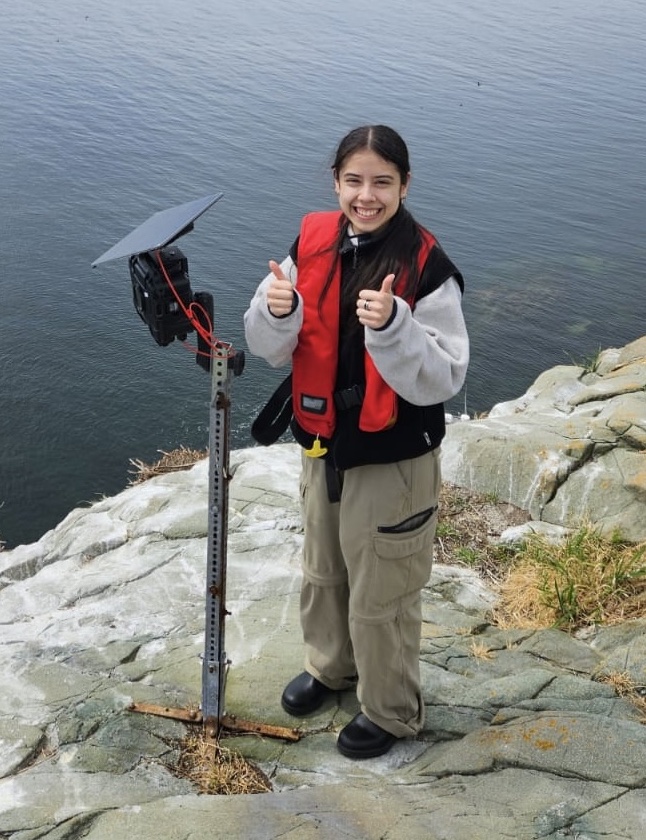
Kassandra is completing her BSc in Environmental Science with a concentration in applied biology at SFU. She is passionate about learning about the interconnections of British Columbia’s coastal and marine ecosystems and exploring the effects of climate change. Kassandra joined the lab this summer to explore nesting success of the Double Crested Cormorant in the Strait of Georgia using time lapse photography.
------------------------------------------------
Nadège Fonvieille

Nadège completed her PhD in France, where she studied southern elephant seals to characterise the three-dimensional pelagic seascape of the Southern Ocean. Her work spans marine ecology, oceanography and applied statistics. She is now a postdoctoral fellow at SFU in partnership with the North Coast Cetacean Society through the Mitacs Acceleration program. Her project aims to better quantify the impacts of vessel activity on humpback, fin and killer whales by analysing their vocal and movement responses to ship presence and noise. The second objective is to develop disturbance indicators to inform conservation strategies. This work will leverage four years of acoustic data from multiple hydrophones along the BC coast.
------------------------------------------------
Fabio Frazao
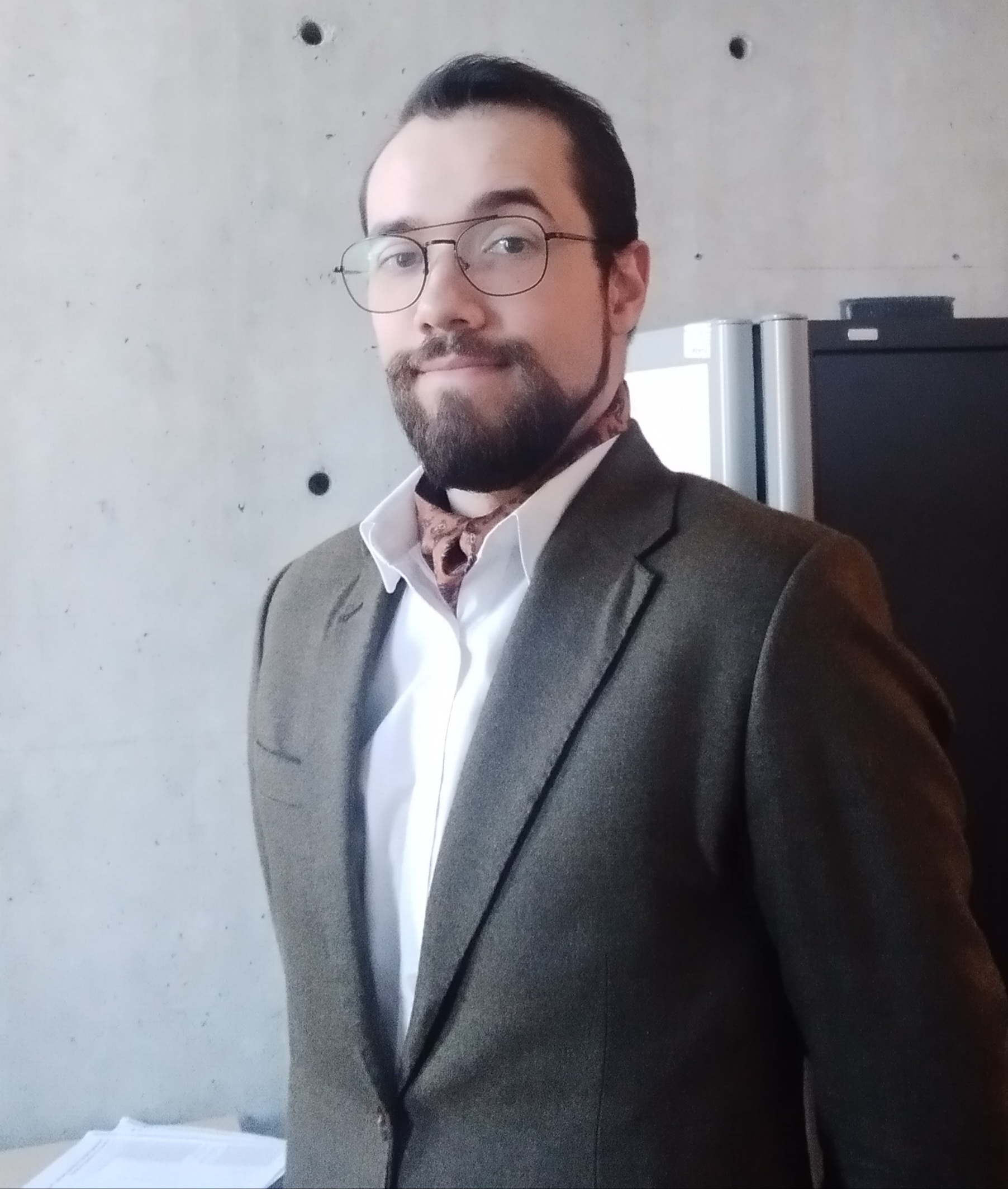
Fabio has a background in ecology, electronics, and scientific computing. He is generally interested in how technology can be used in the environmental sciences and in 2018 joined the MERIDIAN group at Dalhousie University, where he has been applying artificial intelligence techniques such as deep learning to marine bioacoustics. In 2021, Fabio started his doctoral research on new artificial neural network-based algorithms that incorporate more context into the acoustic detection of marine animals. Using the killer whales of the Salish Sea as a study case, the new algorithms aim to make use of the environmental information that is available to the whales themselves to improve the accuracy of acoustic detections. Real-time processing of underwater sound will help predict where whales are going and, among other applications, reduce ship collision risk.
------------------------------------------------
Lauren Laturnus
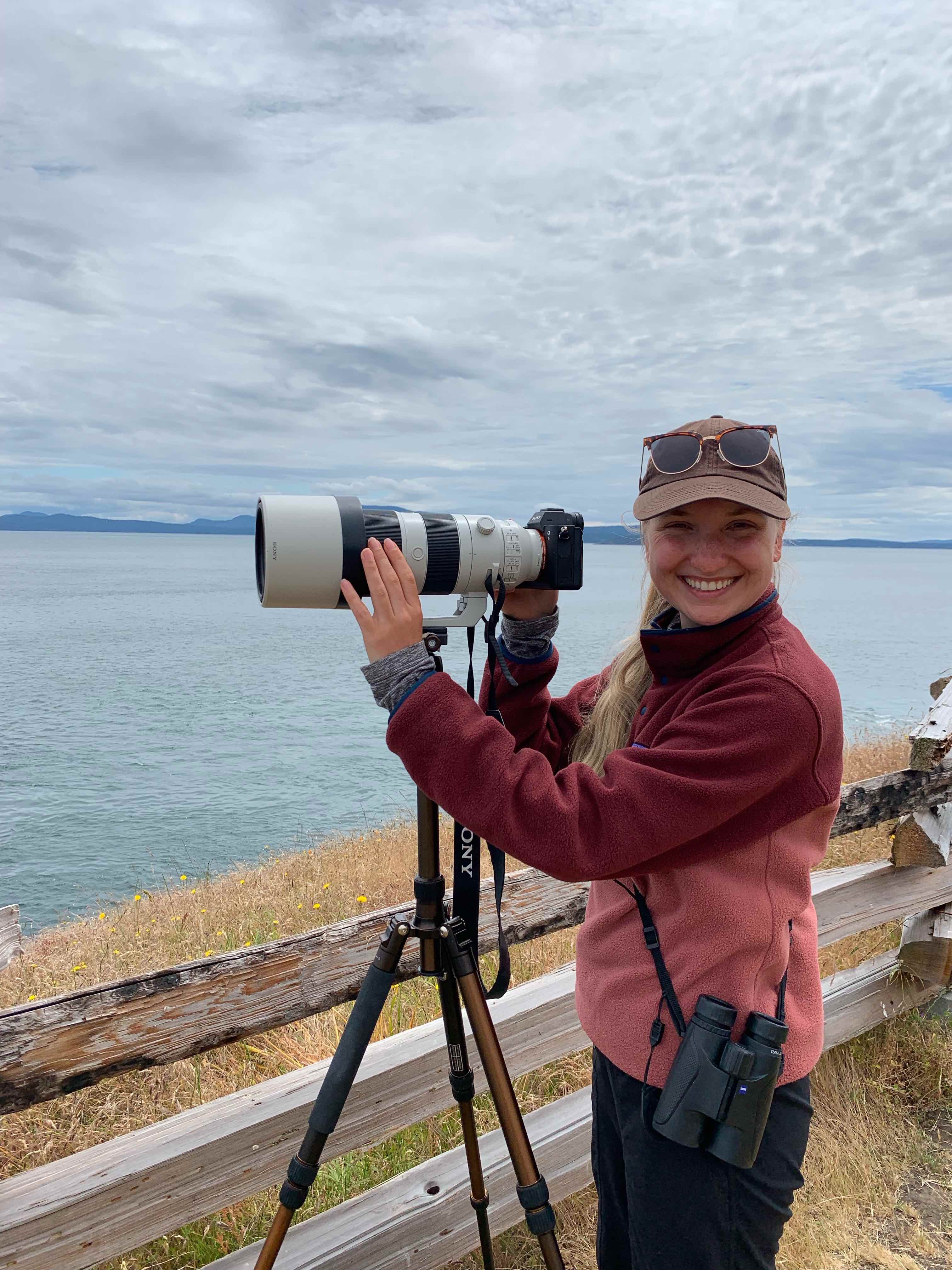
Lauren graduated from SFU in the spring of 2022 and started her MSc in the summer of 2024. Lauren is passionate about the environment and the preservation of species affected by climate change and anthropogenic disturbances, particularly ocean mammals and birds. She is spending the summers on Saturna island where she is collecting data on the impacts of underwater vessel noise on cetaceans by using both land-based and acoustic observations. She is having a whale of a time!
------------------------------------------------
Teng-Wei Lin
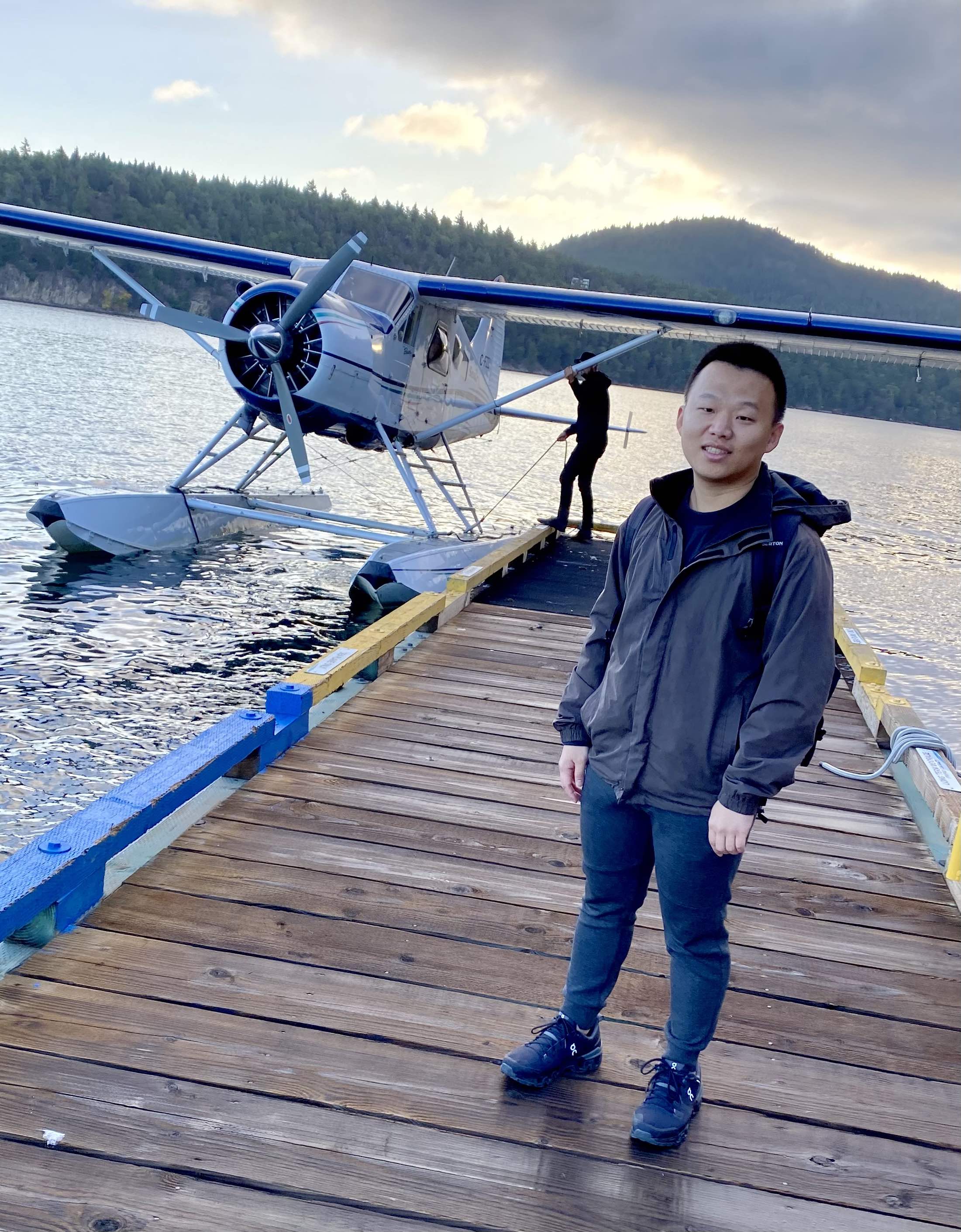
Teng-Wei is a PhD student in Statistics at SFU. He has a background in statistics, hydraulic engineering, and environmental science, and is generally interested in applying statistical and engineering methods to tackle real-world problems. Before pursuing PhD, he completed his MSc in Statistics at SFU, and MSc and BSE in Bioenvironmental Systems Engineering at National Taiwan University. His doctoral research focuses on real-time animal movement forecasting, especially for southern resident killer whales, with stochastic models. He will dive into a variety of datasets, including citizen scientist observations, physical parameters, and acoustic samples from hydrophones, and build an efficient animal movement forecast scheme.
------------------------------------------------
Andrea Mendez-Bye
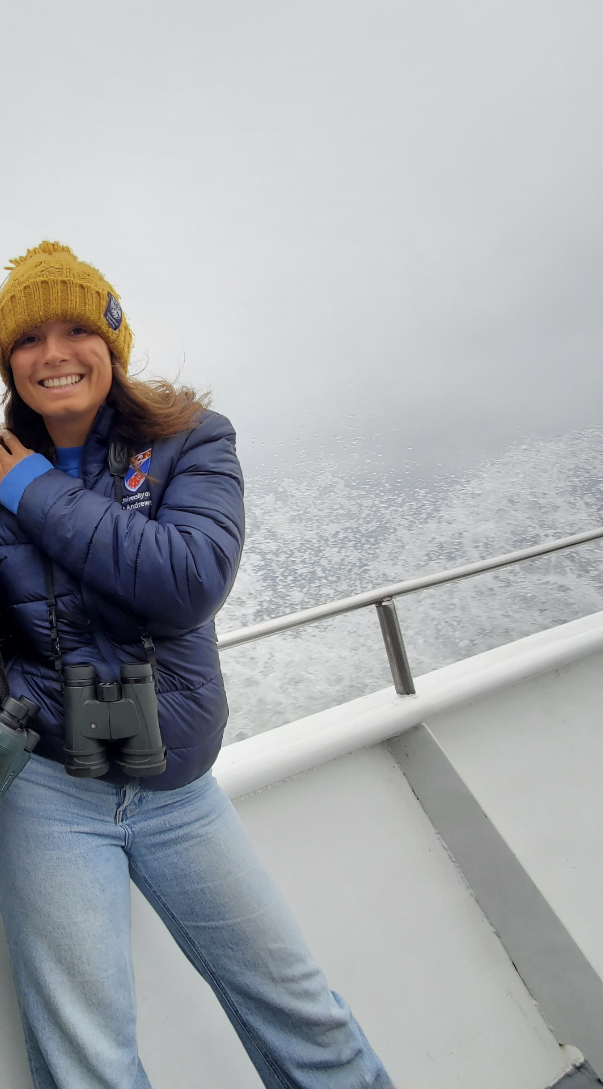
Andrea is a joint PhD candidate studying at SFU and La Rochelle University. She is presently investigating how climate change is affecting behaviour and foraging efficiency of hooded seals. Before pursuing a PhD, Andrea received a BSc in Biology at California State University Channel Islands,and MSc in Statistical Ecology at St Andrews University. She is highly motivated to understand how climate change plays a role on small scale behaviours and physiological adaptations of a population as well as understanding the larger scale of ecological impact.
------------------------------------------------
Bruno Padovese
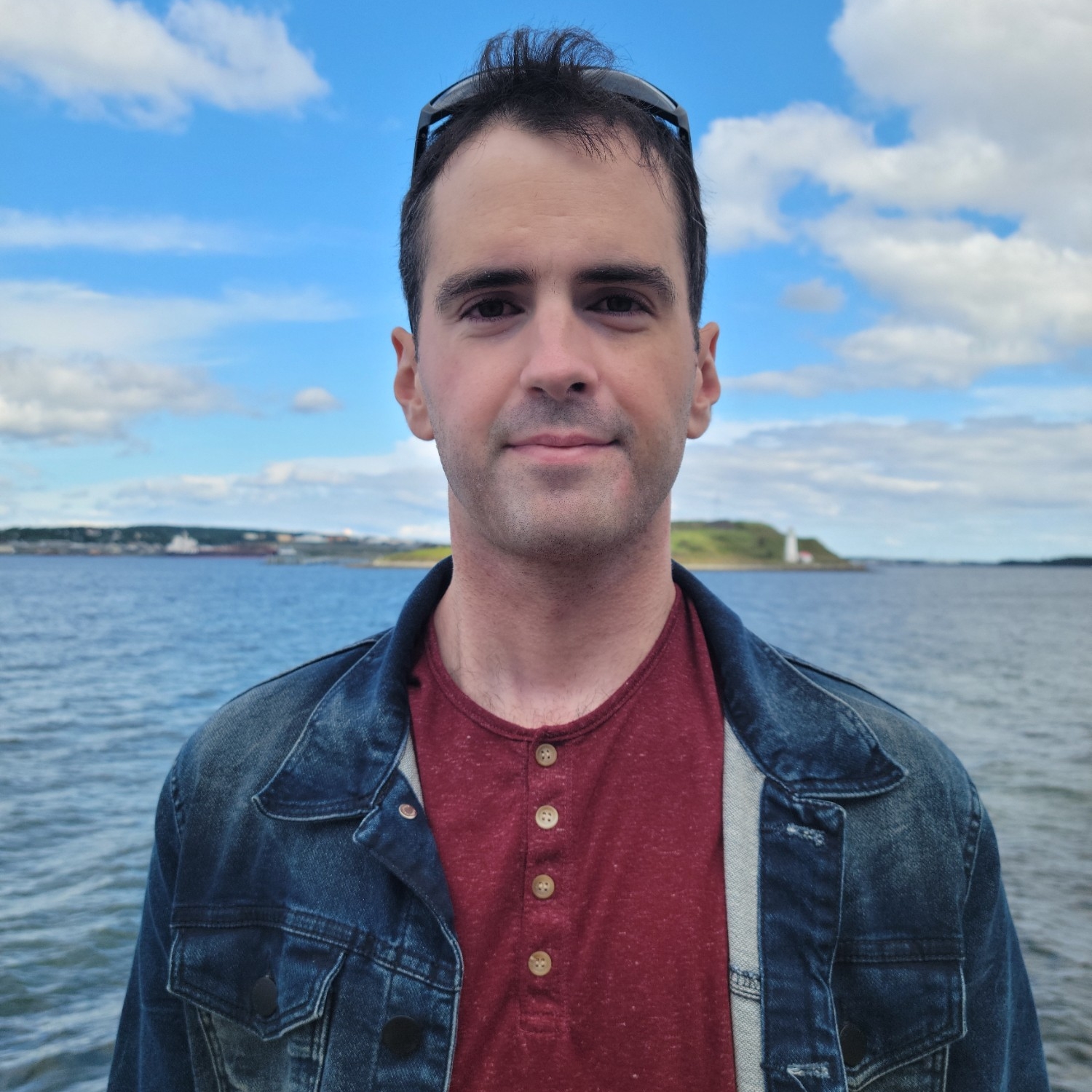
Bruno is a Postdoctoral Fellow in the School of Environmental Science. He has a background in computer science and is generally interested in the intersection of machine learning and environmental sciences. He earned his PhD in computer science from Dalhousie University. His reasearch was in developing deep learning models to aid marine researchers in identifying marine mammals, with a focus on the North Atlantic Right Whale (NARW). Currently, he contributes to the Humans and Algorithms Listening to Orcas (HALLO) project by developping deep learning-based methodologies for identifying killer whale (KW) vocalizations and generating synthetic KW vocalizations. This approach aims to bridge data gaps and refine the accuracy of deep-leaning based marine mammal classifiers and detectors. Ultimately, his work aims to aid marine scientists in better understanding the complex behavioral patterns and communication methods of marine mammals in acoustically rich environments, and in assessing the consequences of human activities.
------------------------------------------------
Kait Palmer
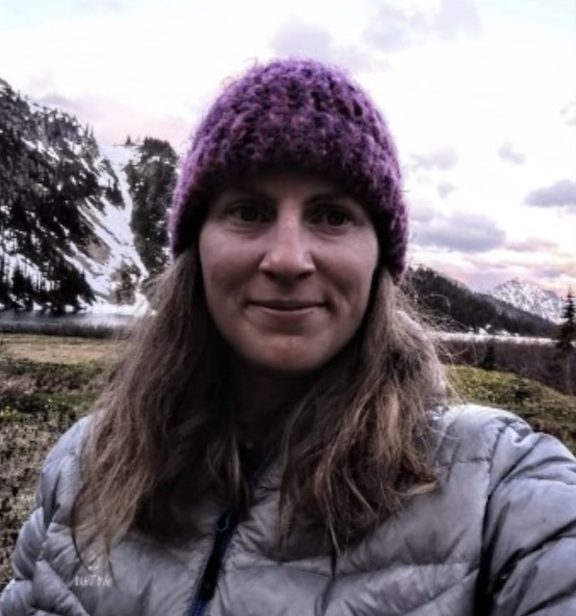
Kait is an acoustic ecologist using sound to monitor and measure animal populations. She has a background in ecology, acoustics, and computer science. Kait completed her PhD at the University of St Andrews and has since worked as a postdoc in machine learning San Diego State University. She has also worked in industry at SMRU Consulting, and as a NOAA contractor. Kait has been working with the HALLO group since its inception and is excited to join as a full-time member of the team. A conservationist at heart, Kait is working to build, evaluate, and implement cutting edge detection and classification algorithms in the service of real time management around protected species.
------------------------------------------------
Ninon Pichard

Ninon is a Master’s student in Marine Ecosystem Management at the University of Lille in France. To finalize her master’s degree, she is completing an internship at SFU, developing workflows for data processing, soundscape characterization, and machine‑learning‑based detection of killer whale vocalizations. Her research focuses on passive acoustic monitoring of the Southern Resident Killer Whales (SRKW) using a newly deployed SoundTrap ST600 hydrophone near the Java Islets in the Salish Sea. Her work contributes to understanding habitat use and acoustic behaviour in a critically endangered population.
------------------------------------------------
Neil Saxvik
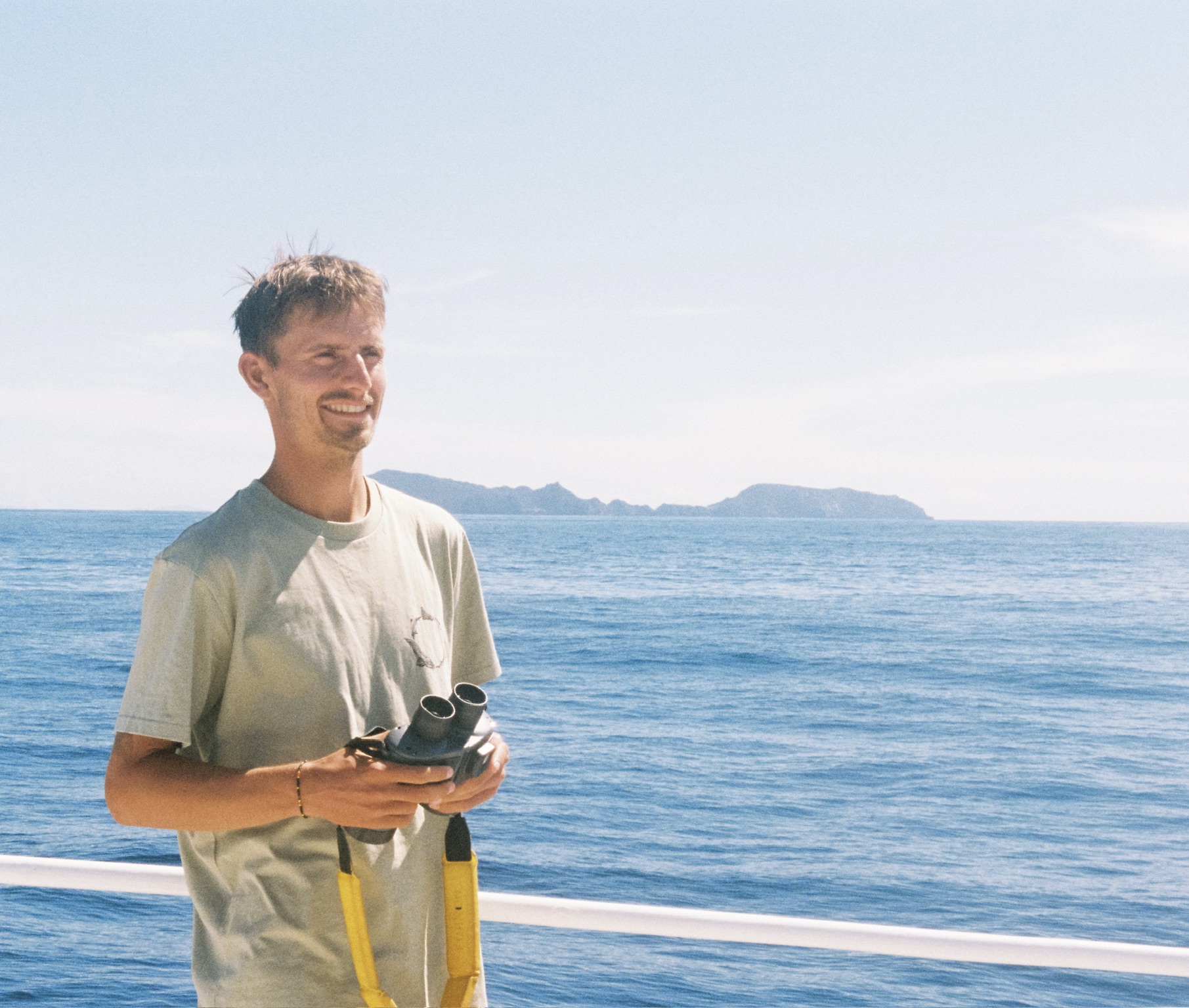
Neil is a masters student in the School of Environmental Science. Growing up exploring the coast, Neil has gained a huge appreciation for the mass diversity of life that the Salish Sea supports and the importance and power it holds in our everyday life. Neil's background is in vessel disturbance mitigation for cetaceans and for his masters is interested in studying vessel noise impacts to determine how we can better co-exist with whales in a highly trafficked Salish Sea.
------------------------------------------------
Peter Thompson

Peter is a quantitative ecologist with particular interests in animal behavior, movement, and human-wildlife coexistence. He is part of the lab through a Liber Ero Postdoctoral Fellowship. His project focuses on identifying why Southern Resident killer whales go where they go, and using this information to predict how their movement and space use patterns may change in response to their changing environment. He will be accomplishing this by integrating a number of data sources, including citizen science datasets and acoustic observations recorded via hydrophones.